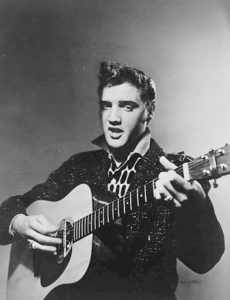 Earlier today we were about to cross the Mississippi River at Memphis, en route from Texas to a conference in Louisville, Kentucky.
Earlier today we were about to cross the Mississippi River at Memphis, en route from Texas to a conference in Louisville, Kentucky.
Crossing the Mississippi is a big deal in our family. We do the countdown every time: “12 more miles, 6 more miles, 3, 2, 1, here’s the bridge . . . yeah! . . . we just crossed the Mississippi!” With my own kids, I would inevitably then launch into some kind of narration about the difficulties of crossing such rivers before bridges were built, or the importance of rivers in military battles.
But for our three-year old granddaughter, just crossing it provides enough excitement. She has done it already several times (I, on the other hand, first crossed it only after high school). But usually we’re on the southern route and the state of Mississippi is right there on the eastern side. This time, though, we were further north. Tennessee greeted us, instead of Mississippi.
Well, that brought on a small crisis. “Where is Mississippi, grandma?”
How better to solve such a problem than to invoke some music history? So I said, “Honey, we’re farther north, I’ll show you on the map, and this is Memphis.” I began to talk about Elvis—how he was born in Mississippi, but later came north to the important music city of Memphis. And how he had a big house called Graceland that we might visit one day to see the fancy costumes he wore in his shows. I sang the opening of Love Me Tender and Blue Christmas, and thought I was doing pretty well.
Then she asked the logical question posted by many a three-year-old: “Can I go play with him?”
We hear that question a lot these days. It seems to mean a variety of things, including “Is that person still alive?” She’s already figured out that grandma talks about a lot of people who died a long time ago. I still regret the day I brought up Charlemagne.
But Elvis, that should be easy. In my most tutorial voice, I explained that Elvis was not on this earth anymore, but that his music is still alive. That’s accurate, isn’t it?
From the back seat I heard the kind of hearty laugh only a toddler can summon up. I had obviously said something hilarious. Through her laughter, I understood her to say, more or less, that puppies are alive, people are alive. But music? Alive? Walking around on two legs?
It is quite a concept, isn’t it? A person creates something. It does (or doesn’t) touch the audience intended to receive it. In some cases, though, it continues to be heard or seen by future generations, who are moved by it too. What is more indicative of great art than the ability to speak both to audiences in one’s own time and to those in the future? Still, think about it. If you are three, and an artist does “live on” through his art, then shouldn’t you still be able to play with him?
About that time, we rounded the curve and passed by St. Jude’s Hospital for Children. I switched topics and was saved by her questions as to whether she would ever go there and, if so, would she be able to play with the children?
Elvis will come back into the conversation, I’m sure. In fact, several hours down the road, we ate a seriously southern meal at Loretta Lynn’s Kitchen (put your calorie counters down, all ye who enter). And that gave us another chance to talk about more American music history.
Meanwhile, tucked into a hotel now, I’m thinking how blessed we are that we still can play with Beethoven and Prokofiev, Bach and Gershwin, and, for that matter, Elvis and Loretta. I’ll be giving a new talk at this conference about the nature of Artistic Literacy and the critical role it plays in the spiritual triumvirate of Goodness, Truth, and Beauty. I may rework a bit of it, so as to employ my granddaughter’s apt phrase. What do you think?



